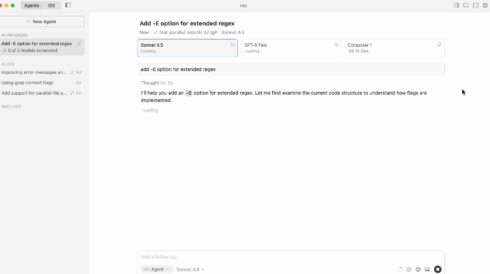The Dystopian Classroom: Deconstructing Alpha School, Grokipedia’s Bias, and the Rise of AI Slop
This week, the relentless march of technology presented a series of stark contrasts, from groundbreaking medical achievements to the troubling misuse of artificial intelligence in our daily lives. We witnessed the launch of an ideologically driven encyclopedia, the rise of AI-generated “slop” in the real estate market, and a deep dive into a futuristic school that prioritized software over teachers, with disturbing consequences. These stories, woven together, paint a complex picture of a world grappling with the promise and peril of innovation, forcing us to question where we draw the line between progress and overreach.

The Human Cost of Political Gridlock
Before we delve into the world of AI, it’s crucial to acknowledge a crisis rooted in human decision-making. The ongoing federal government shutdown has now stretched for a month, leaving approximately 750,000 federal workers furloughed and facing dire financial straits. This is not a story of abstract political maneuvering; it is a narrative of real people struggling to pay bills, taking on side gigs, and, in some cases, relying on food banks to survive.
The personal stories are harrowing. One federal worker, stationed abroad, recently learned that her husband, also a federal employee, was diagnosed with an aggressive form of cancer. Doctors urged immediate action, and they followed the medical advice. Now, with the government at a standstill, their health care claims are not being processed. They are facing tens of thousands of dollars in out-of-pocket medical expenses with no clear timeline for reimbursement. This is the devastating reality for a family serving their country, now caught in the crossfire of political intransigence.
This worker’s sentiment captures the profound sense of betrayal felt by many:
“I am a federal worker just like Mike Johnson. We took the same oath. We’re both federal employees, but he’s getting paid and I’m not. He’s getting healthcare and I’m not.”
The situation is poised to worsen. Critical benefits like SNAP (food stamps) are scheduled to end, compounding the hardship for the most vulnerable. The politicization has become overt, with government agency websites and employee out-of-office messages being forcibly changed to blame one political party for the shutdown. Federal workers, who are already underpaid and often living paycheck to paycheck, are not only facing financial ruin but are also seeing their own departments turned into political weapons against them. While the longest shutdown on record lasted 35 days in 2018-2019, the current crisis is on a firm trajectory to surpass that grim milestone, leaving a trail of broken trust and financial devastation in its wake.
Elon Musk’s Echo Chamber: The Perils of Grokipedia
Speaking of billionaires and their influence, Elon Musk has once again entered the information wars with the launch of Grokipedia, an AI-generated alternative to the crowdsourced encyclopedia, Wikipedia. Billed as a massive improvement, its initial output suggests it’s less an objective source of knowledge and more a reflection of its creator’s ideological leanings and a repository for far-right talking points.
The platform, powered by the same AI that famously generated the concept of “MechaHitler,” is rife with inaccuracies and severe bias. It actively denounces mainstream media, promotes conservative figures like Donald Trump, and circulates harmful narratives about LGBTQ+ individuals. Rather than being a true Wikipedia competitor, it functions more like a summary of Grok’s replies to random users on X, creating an echo chamber of Musk’s personal views.
The examples are egregious and reveal a deliberate effort to rewrite history and established facts:
- On Slavery: The Grokipedia entry for “slavery in the U.S.” includes a section outlining “ideological justifications made for slavery.” It then pivots to criticize the 1619 project, claiming it “incorrectly framed slavery as the central engine of the nation’s political, economic and cultural development”—a direct contradiction of historical consensus.
- On HIV/AIDS: Another entry baselessly claims that the proliferation of pornography worsened the HIV/AIDS epidemic in the 1980s, a historical falsehood that aligns with specific moral crusades rather than factual medical history.
- On Media Critiques: The platform doesn’t shy away from self-referential attacks. The entry on WIRED directly quotes Musk’s own criticism of the publication:
“High profile detractors, including Elon Musk in February 2025 have labeled WIRED as devolving into far left wing propaganda.”
When Grokipedia isn’t pushing a specific agenda, it often just plagiarizes from the very platform it seeks to replace. The result is a distorted mirror of Wikipedia, altered to fit an ideological mold. It represents a significant step backward for the democratization of information, trading collaborative, verifiable knowledge for an AI-generated fever dream.
The “AI Slop” Era: How Artificial Intelligence Is Warping Real Estate
The creep of generative AI continues into another fundamental aspect of our lives: finding a home. The real estate market is now entering what can only be described as its “AI slop era,” where listings are increasingly populated not with genuine photos, but with AI-generated videos and images depicting hyper-idealized versions of properties.
Apps like AutoReel allow any real estate agent to take a standard photo of a space and, within minutes, transform it into a glossy, dream-like video. The drab living room is suddenly bathed in golden-hour light, the cluttered backyard becomes a manicured oasis, and the dated kitchen is rendered with sleek, modern finishes. The founder of AutoReel estimates that between 500 and 1,000 new AI-generated listings are created daily in the U.S., New Zealand, and India using his app alone, marketing thousands of properties under a veneer of digital fantasy.
For many millennials and prospective buyers who spend hours scrolling through Zillow, this trend is profoundly disheartening. The fun of virtual house-hunting is replaced by a game of “spot the fake,” eroding trust in the entire process. What was once a source of aspiration has become a source of frustration.
The rationale for agents is simple: it’s a matter of time and money. Professional virtual staging can cost hundreds of dollars and take days. An AI app does it for a fraction of the cost from a smartphone. However, this convenience comes at a steep price. As one agent acknowledged, a home is likely the largest and most significant purchase a person will ever make. To begin that deeply personal journey with a lie—by showing a polished, non-existent version of the property—is to break trust from the very first interaction. It remains to be seen if the inevitable backlash from disillusioned buyers will be enough to curb this tide of digital deception.
A Medical Milestone: The Promise of Xenotransplantation
Amidst the troubling applications of technology, a genuinely hopeful story emerges from the world of medicine. Surgeons at Massachusetts General Hospital recently marked a significant milestone in the field of xenotransplantation—the process of transplanting organs between different species. A 67-year-old man lived for a record-breaking nine months with a genetically engineered pig kidney before it was removed.
While nine months may not seem long, it represents a monumental leap forward. Previous attempts at similar transplants had failed within two to three months. This success demonstrates how far the science of gene editing has come, making interspecies transplants a more viable possibility.
The need for this innovation is critical.
- 90,000: The number of people currently on the waiting list for a kidney transplant in the U.S. alone.
- 28,000: The number of kidney transplants performed in the U.S. in 2024, highlighting a massive shortage of human organs.
If xenotransplantation can be perfected, it could offer a lifeline to thousands, freeing them from the grueling reality of dialysis and allowing them to reclaim their lives. Massachusetts General Hospital plans to conduct another genetically edited pig kidney transplant before the end of the year, pushing the boundaries of what is possible and offering a glimmer of hope for a future where organ shortages are a thing of the past.
The Unraveling of Alpha School’s Tech-First Promise
In a quiet corner of Brownsville, Texas, a chain of private micro-schools called Alpha School sold parents a vision of the future. It was an education built for the modern age, where software, not humans, served as the primary teacher. The school promised to cultivate self-starting, independent learners by crunching lessons into intense two-hour blocks, leaving afternoons for “life skills.” For parents intrigued by a novel, tech-forward approach, it seemed like a golden ticket.
However, for some families, the futuristic promise devolved into a dystopian reality.
The story of Christine Barrios and her 9-year-old daughter offers a chilling window into the school’s methods. Her daughter became stuck on a math lesson within the IXL personalized learning software—her designated “teacher.” The program demanded she repeat a multiplication exercise tens of times without a single mistake. When she asked her “guide” (the school’s term for human facilitators) if she could move on, the answer was a firm no.
Over an entire weekend, Barrios and her husband spent hours coaching their daughter through the lesson as she broke down, sobbing that she would “rather die than keep going.” They resorted to double-checking every answer on a calculator before she entered them. But when she returned to school, the crushing news came back: in the time she spent stuck on that one lesson, she had fallen even further behind on her other targeted goals.
The situation escalated. The school informed the parents their daughter wasn’t eating her lunch, claiming she “would rather stay in and work.” The girl later confessed she was using her lunch break to catch up on the relentless IXL software. The final straw came when the snacks her parents packed for her began returning uneaten.
Her daughter explained that the staff at Alpha School told her she “didn’t earn her snacks” and wouldn’t receive them until she met her learning metrics.
Understandably, Christine Barrios immediately pulled both of her children out of Alpha School. Hers is just one of many disturbing accounts gathered from parents, students, and former educators who found that the school’s obsession with data came at the expense of children’s well-being.
| The Promise of Alpha School | The Reported Reality |
|---|---|
| Students learn at their own pace. | Children get stuck in software loops, punished for not keeping up. |
| A futuristic, superior approach to education. | An eerie, quiet environment of kids isolated by headphones. |
| Guides facilitate learning. | Many guides lack teaching backgrounds and enforce rigid software demands. |
| Focus on “life skills” and well-being. | Children are denied food for failing to meet learning metrics. |
| Empowering students to be self-starters. | Constant surveillance, including eye-tracking and at-home webcam monitoring. |
Last fall, the experiment intensified. In a memo, the school announced a new initiative called “Limitless,” which established goals “deliberately designed to cause a parent to think or say, ’that sounds impossibly difficult for my kid.’” The stated purpose was to “demonstrate the limitless possibilities of their children,” but for many, it confirmed that numbers and data had taken precedence over the children themselves.
The system was supported by “guides,” many of whom were intentionally recruited from the world of entrepreneurship rather than education, prioritizing a startup mentality over pedagogical expertise. This philosophy was paired with pervasive surveillance. Reports surfaced of eye-tracking software monitoring students’ focus, and one student received a notification at home that she had been flagged for an “anti-pattern” of distraction. The system sent her a video, taken from her computer’s webcam, showing her in her pajamas talking to her younger sister.
In response to these accounts, Alpha School stated that “allegations that Alpha has mistreated, punished, or caused harm to any students are categorically and demonstrably false.” Yet, even as criticism mounts, the school is undergoing a massive national expansion, with a dozen new campuses planned across the country. In an era of nationwide teacher shortages, this data-driven, teacher-lite model is attracting significant funding and political support, positioning itself as the future of education—a future that, for some children, looks terrifyingly bleak.








Comments